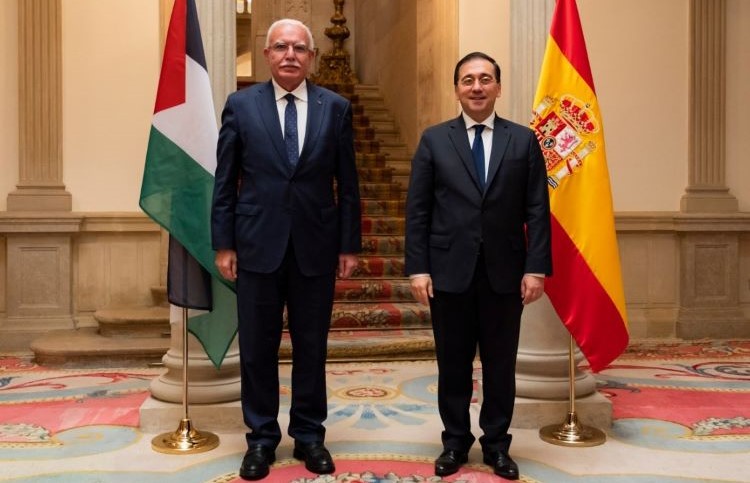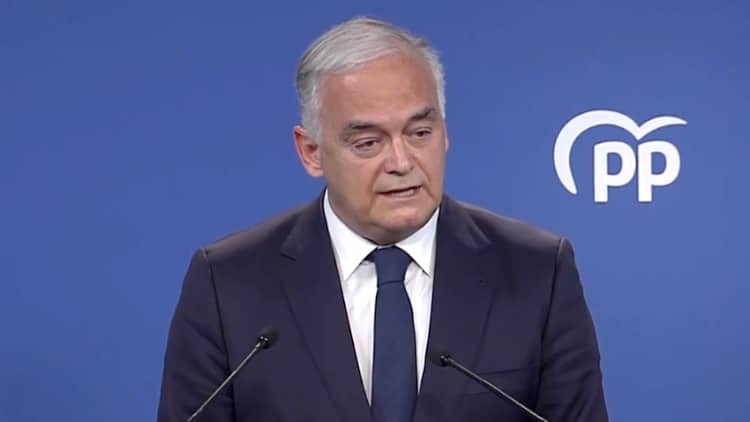The Diplomat
The Minister of Foreign Affairs, José Manuel Albares, received yesterday in Madrid his counterpart from the Palestinian Authority, Riyad al Maliki, to whom he reiterated Spain’s support for the “two-state solution”.
During the meeting, held at the Palacio de Viana in Madrid, Al Maliki denounced “the Israeli violations and crimes against the Palestinian people” and stressed the need for “the international community to demand that the new Israeli government put an end to its settlement policy and clearly abide by the two-state solution”, according to the Palestinian news agency WAFA.
The Palestinian minister also affirmed that the 1991 Madrid Conference was “a historic milestone in the early stages of the peace process”, but peace has not been possible because of Israel, “the occupying power”, and its policy of “faits accomplis on the ground through settlement construction, land confiscation, killing and arbitrary detention of Palestinians”.
For his part, Albares expressed to Al Maliki Spain’s “firm position in support of the legitimate rights of the Palestinian people” and its “strong commitment to the two-state solution” and assured that Spain will continue to support Palestine “in all areas”, either “alone or through its partners to advance the peace process”, WAFA added. The Spanish Foreign Ministry limited itself to disseminating a tweet from Albares with two terse messages: “Good meeting with Riyadh Al Malki, my Palestinian counterpart. We reviewed bilateral relations and the regional situation.”
Al Maliki’s visit to Spain coincided with the first working tour of the director of the Spanish Agency for International Development Cooperation (AECID), Antón Leis, in the Middle East, specifically in Palestine, Lebanon and Jordan. The agenda began last Tuesday, June 28 in Jerusalem and will end next Tuesday in Beirut, after learning about the most relevant initiatives of the Agency in the field and meeting with the different actors involved in them.
The Agency works in Palestine through its Humanitarian Action Office in East Jerusalem, from where it coordinates the initiatives of the Spanish Cooperation in coherence with the cooperation agreement that Spain maintains with the country, the Spain-Palestine Country Partnership Framework (MAP) document, which commits an investment of up to 100 million euros in favor of development. Gender equality, economic development, job creation, strengthening of public institutions and the defense of human rights are the priority areas of development of Spanish Cooperation in Palestine. The V Master Plan of the Spanish Cooperation in force includes Palestine as a Middle Income Partnership Country in the Maghreb and Middle East region. The overall objective of Spanish Cooperation is the achievement of a viable and democratic Palestinian State in a pacified region.
Spain was the first member state of the European Union to formalize cooperation relations with Palestine through the signing, in 1993, of the first Joint Spanish-Palestinian Commission for Cultural, Scientific and Technical Cooperation. To date, there have been six Joint Commissions that frame the close relationship of friendship and joint work between the Spanish Cooperation and Palestine.






